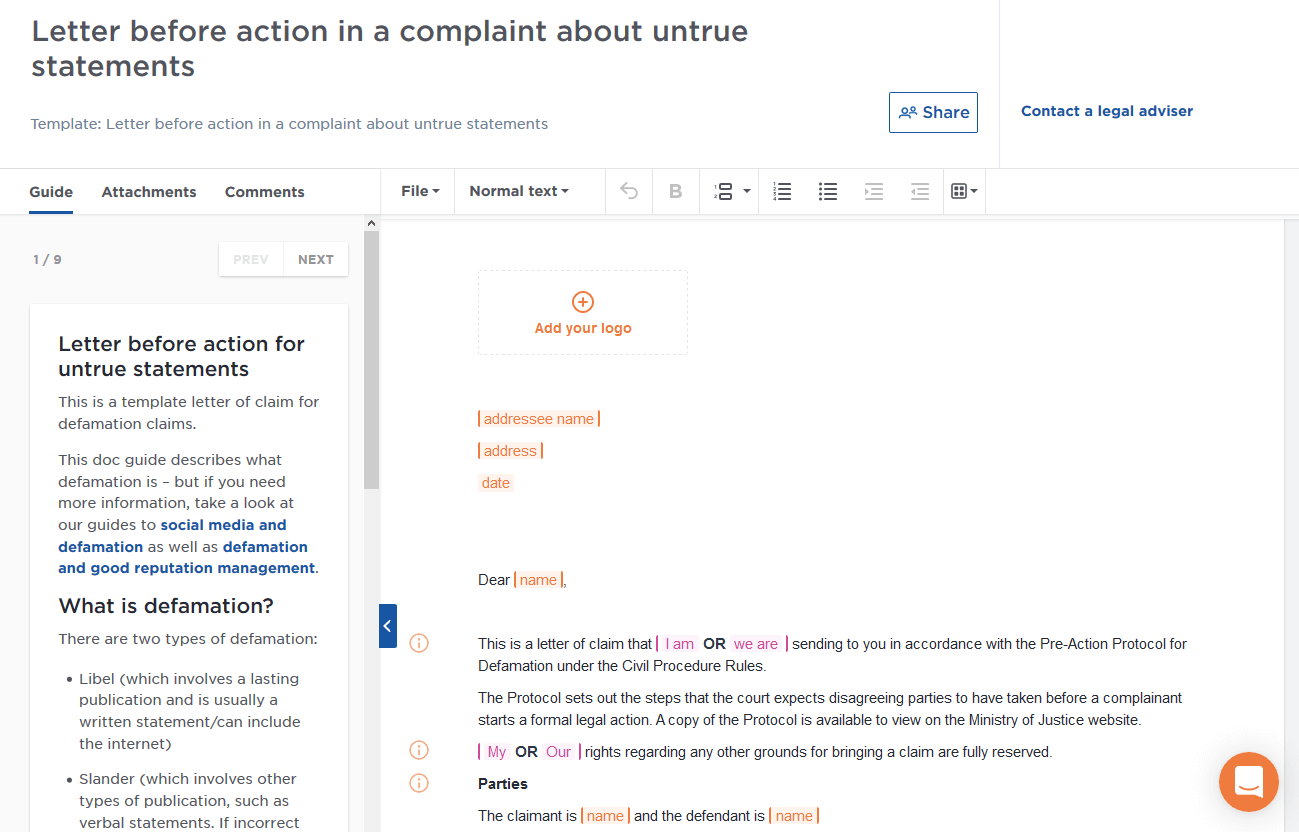While there is no statutory definition, defamation can usually be considered to be an untrue spoken or written expression, referring to a person, which when published, is deemed harmful or likely to harm the reputation of an individual.
You have access to a number of guides and template letters that could help you if your business is being defamed on DAS Businesslaw.
Forms of defamation
There are two forms that a defamatory statement can be made;
- A permanent form, such as written or video, is known as libel.
- A temporary form, such as spoken words, is known as slander.
Due to the nature of slander there is a requirement of proof of the actual words spoken and it is not enough to show the believed substance of the words. Unlike libel, slander requires the need to show loss, either monetary or equivalent. There are 2 exceptions to this rule, which are imputation of a crime and imputation of incompetence in a trade, office, profession or calling.
It also needs to be shown that the claimant is identified in either of these forms, either directly or by reference.
Meaning of the words used
The principal issue in defamation cases is the precise meaning of the words used.
Generally words that amount to just vulgar insults are not usually found to be defamatory whereas words used to hold the subject up to mockery and ridicule can be found to have a defamatory meaning.
Some statements are defamatory on their natural or ordinary meaning e.g. accusations of illegality or immorality. Others can have an innuendo meaning where the reader had knowledge of special facts causing them to read the statement in defamatory meaning. The test of meaning is an objective test in what an ordinary reader would understand the words to mean.
The meanings have to be related to the effect that the communication has upon its subject by way of the effect it has upon society or the community generally; therefore it will need to be shown that:
- The statement was communicated to a third party;
- It caused or is likely to cause serious harm to the claimants reputation:
- It causes the regard in which the subject is held by right thinking or reasonable members to be lowered;
- It substantially affects in an adverse manner the attitude of others towards the claimant.
For commercial bodies, reputational damage is not serious unless it has caused or is likely to cause serious financial loss.
Defences against defamation
There are two main complete defences to defamation allegations.
- Truth – It can be shown that the statements complained of are substantially true;
- Honest opinion – It can be shown that an honest person could have held the opinion on the basis of any fact existed at the time or anything asserted to be a fact in a privileged statement published beforehand.
You can read more about this in our defending against defamation claims section.
Get help with defamation
If you have DAS Commercial Legal Expenses Insurance as part of your policy, you can find more on defamation on DAS Businesslaw, including guides on defamation and a template for drafting a letter before action.

Debt recovery documents
How to register
To register, simply follow these steps:
- Find your voucher code in your policy wording;
- Visit www.dasbusinesslaw.co.uk, then enter your code into the voucher code box in the Register section;
- Complete your details and validate your email.
Disclaimer: This information is for general guidance regarding rights and responsibilities and is not formal legal advice as no lawyer-client relationship has been created. Note that the information was accurate at the time of publication but laws may have since changed.